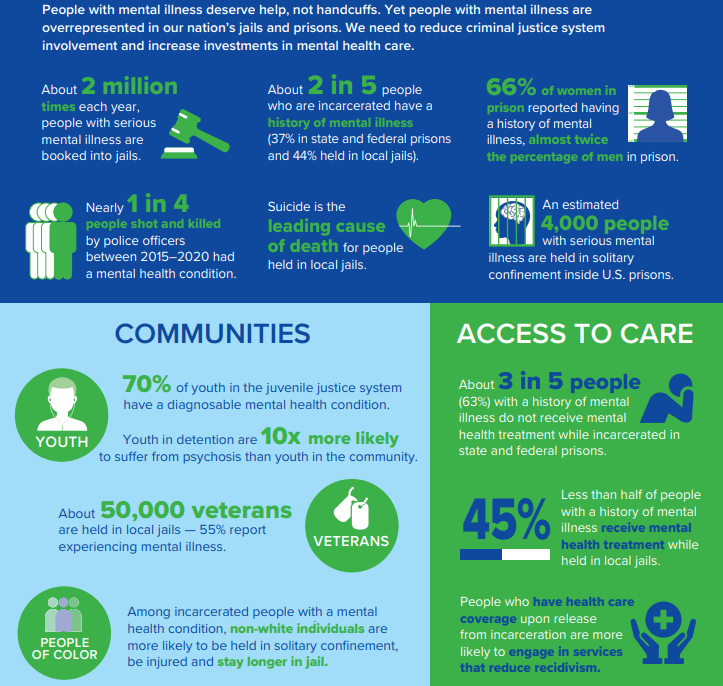Mental Illness and the Criminal Justice System
63 percent of persons in federal prisons reported receiving no mental health care while incarcerated

At every step in the U.S. criminal justice system, the failure to adequately address mental health as a significant community health issue plays a large role in prison overpopulation. Persons with mental illness were three times as likely to encounter an altercation with the police that resulted in arrest. As noted in the infographic above, around 40% of people currently incarcerated have a history of mental illness, which is twice the rate of mental illness occurrence among the U.S. population.
Behind the prison walls and despite constitutionally-mandated rights to receive physical and mental health care, there is a significant lack of access to adequate mental health care in incarcerated settings. 63 percent of persons with a history of mental illness do not receive mental health treatment while incarcerated in state and federal prisons. It is also challenging for people to remain on treatment regimens once incarcerated. In fact, more than half of individuals who were taking medication for mental health conditions at admission did not continue to receive their medication once in prison.
In addition to provided medically-necessary mental health medications and treatment, people who are incarcerated should have access to supportive programs and therapies to help work toward release and create as beneficial an environment as possible for re-entry into the community.
You can view a
short video from NAMI (National Alliance on Mental Illness) about their advocacy for mental health treatment while incarcerated.










